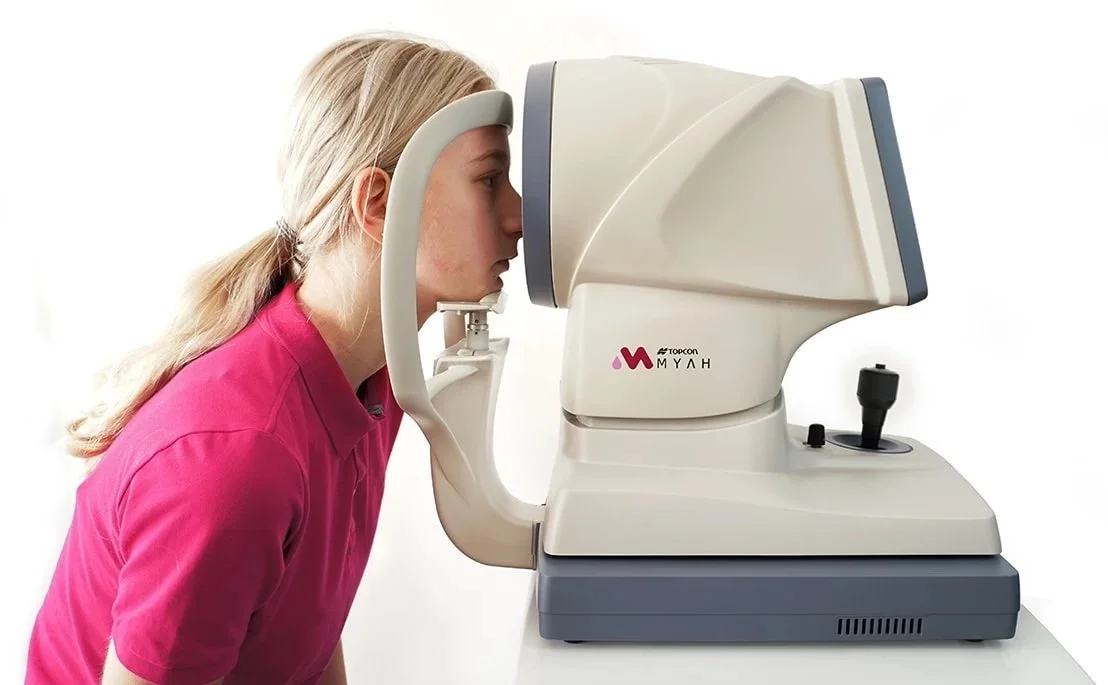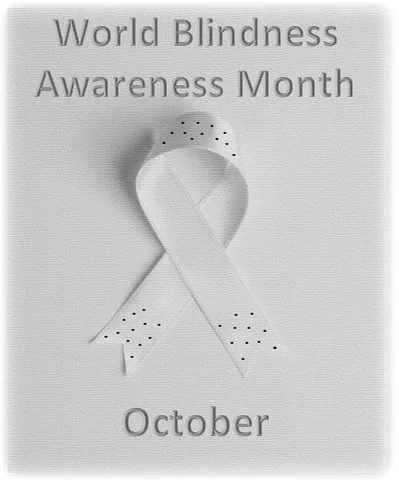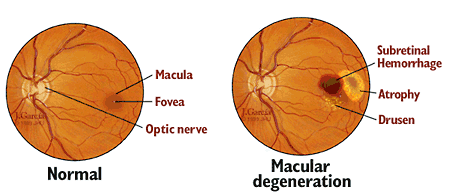At View Optometry, we’re always looking for ways to enhance our offerings while supporting local businesses. That’s why we’re excited to announce the arrival of Canadian made Spectacle Eyeworks frames and Vision Essence eye health supplements at our clinic!
Read MoreThe holidays are here, and what better way to show your loved ones you care than with thoughtful gifts that help them see and feel their best? Whether you're shopping for someone who wears glasses, struggles with dry eyes, or loves taking care of their eye health, we've got you covered. Check out our top picks for the season!
Read MoreIn the realm of sleep disorders, sleep apnea stands out not only for its impact on breathing but also for its lesser-known effects on eye health. Recent studies have shed light on the intricate relationship between sleep apnea and various eye conditions, highlighting the importance of holistic healthcare. Let’s delve into how sleep apnea can affect your eyes and what steps you can take to protect your vision.
Read MoreThe spring and summer seasons are a busy time for eye care professionals, so we thought this was a good time to talk about which eye care professional you see for which eyecare need.
Read MoreIt amazes me how many types of lasers there are and how many different ways they can be used in eyecare. From correcting eyesight to treating diseases that were previously untreatable, lasers are offering new hope and improved quality of life for patients around the world. With the use of lasers, we can provide better visual outcomes by more accurately diagnosing diseases and providing safer treatment options. Here we will delve into some examples of laser use in eyecare, exploring their benefits and impacts on the way we treat our patients.
Read MoreWith so much screen time and indoor activities these days it’s no wonder that kids are becoming more myopic (or nearsighted) than the previous generation. There are lots of factors that go into preventing high myopia and as parents it’s critical to be proactive by safeguarding our children from having very high non-functional prescriptions. It is predicted that 50% of the population will be myopic by 2050. This is worrying because people with myopia have a higher risk of sight threatening conditions such as glaucoma, macular degeneration, and retinal detachment.
Read MoreIt is important to care for your eyes as well as possible during the Summer months – particularly as temperatures soar! Believe it or not, your eyes can in fact get sunburned just like your skin does when you don’t take the necessary steps to protect yourself from harmful UV rays. There are things you can do to prevent eye damage from the sun and other external factors and we’re here to best advise you with our top tips!
Read MoreDo you know why? These days, with all of the developments in the optical world, it is very easy to get confused about your lens options and what choices are best for you. When it comes time to purchase your new eyewear it’s important to understand that not all lenses are made the same. In the following blog, we’re going to walk you through some of the differences between lens technology, coatings and overall comfort when it comes to lenses.
Read MoreAs we are living in an age where digital technology is all around us, it is good to be aware of the risks when it comes to your vision and health in general. Most of us spend more than two hours a day looking at screens, from our mobile phones and computer devices to our smart TVs! These LED screens emit excessive amounts of blue light which produce harmful effects on your eyes. We have outlined some of the ways in which blue light negatively impacts our overall health.
Read MoreDescribed as the “silent thief of sight”, glaucoma is a disease of the optic nerve most often caused by the build-up of intraocular pressure inside the eye. The nerve fibers become damaged by this build-up of pressure and this is followed by blind spots and a loss of vision. This happens because the optic nerve is what transmits the images one sees from the eye to the brain. Glaucoma is dubbed the silent thief of sight as it often does not show any noticeable symptoms until the degeneration of the optic nerve has progressed to a more advanced stage – This is why it is strongly advised by eye care professionals that you have a full comprehensive eye examination every two years (or annually for children and seniors).
Read MoreBefore the month is out, we wanted to bring World Blindness Awareness Month to your attention as October marks this event each year. It is important that we recognize this and reflect upon what this means for the vision-impaired community. Today’s blog post sets out to inform and create awareness around World Blindness Awareness Month.
Read MoreSeptember saw the return of children and students to school and university. For some of those in the workforce, this meant that it was time to return to the office. It is also that time of year again where the weather makes a notable shift from warm, sunny days to cooler and cloudier periods. Whether you are indoors working, studying, or just hiding out from the rainy downpours outside, we have all the best solutions for you this Autumn so that you can protect and care for those peepers!
Read MoreA well-fitting pair of glasses is about more than just how they look. We always want you to have an amazing pair of glasses for both fashion and functionality!
Read MoreUnfortunately, age related macular degeneration (AMD) is the leading cause of severe, permanent vision loss over the age of 60. It is very important to educate yourself about this disease because it affects so many of us.
Read MoreEveryone has heard of the harmful effects of UV exposure and likely the first thing that pops into mind when thinking about your kid is sunscreen! Yes sunscreen can be number one on your list BUT sunglasses should definitely be #2! Sunscreen will protect their skin, sunglasses will protect their eyes, throw in a sun hat for an added layer of protection and you’ll be good to go.
Read MoreFirst let’s talk about the iris. This is the part of the eye that we are talking about when we say “my eyes are blue”. The front layer of the iris is called the stroma and this is what makes eye colour different for each person.
Eye colour has everything to do with the amount of melanin in the stroma of your iris. Brown eyes have lots of melanin and blue eyes have very little melanin.
Read MoreThe OCT takes a very detailed cross-section image of the eye as well as a retinal photo. Dr. Hines looks at these images side-by-side which allows her to pinpoint exactly where within the retina a problem may lie. This allows for a quick diagnosis of so many retinal diseases. She can also detect early signs of diabetes and high blood pressure using these images.
Read MoreWhile you may go to your GP for dry eyes, we encourage you to see an optometrist first, as ocular health is their specialty and they can recommend specific products tailored to your dry eye needs. View Optometry does carry dry eye relief products and we would be happy to assist you with any questions that you may have regarding your eye health.
Read MoreThis year may look a little different in terms of trick or treat but it sure won’t stop us from dressing up in costumes. Unfortunately during Halloween for some of our patients it becomes the scariest day of the year due to eye infections from decorative coloured lenses. Keep reading for some tips on decorative lenses and what could happen if they are bought from a costume shop, online or anywhere that does not require a prescription.
Read MoreYes! We are mixing fashionable eye wear with a green purpose! Consumers everywhere are now paying more attention to where their products are coming from and we are proud to say that we are now carrying ECO by Modo Eye Wear. Keep reading to find out why the Eco line from Modo Eye Wear is so special and why we are happy to be a part of this project
Read More


















